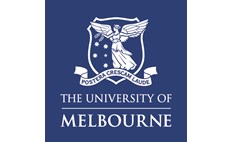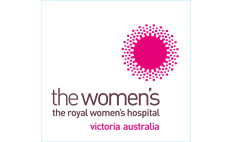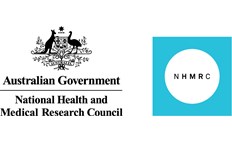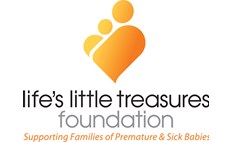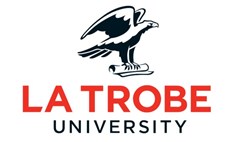News
-

Active-Prem: New Study Recruiting Participants Now
Are you a parent of a pre-school age child who was born very preterm?
Would you like support with engaging your child in community-based physical activity?
Find out more about Active-Prem!
-

Notice of Public Consultation: The SurPre Model of Care
A draft report of the SurPre Model of Care is now available for public consultation. Organisations, health professionals and members of the public with an interest in the developmental follow-up of children born very preterm are invited to give feedback on the Model of Care.
The SurPre Model of Care seeks to provide a family-friendly and sustainable follow-up care model for children born very preterm at 2 to 4 years of age. A key aspect of the Model of Care is that follow up is personalised to the needs of each child and family. This means that the level of support each child receives will be tailored specifically for them, ensuring they get the best possible care.
-

Join us at The Research Connection: 30th November 2024
This exciting conference unites researchers, health professionals, and those with lived experience of preterm birth. Hear inspiring stories from young adults born preterm and parents navigating unique challenges. Researchers, discover how your work can directly impact lives.
Together, we'll shape the future of preterm care. Don't miss this chance to be part of a transformative dialogue!
Register now and be the connection that changes lives:
-

Guideline for Growth, Health and Developmental Follow-up for Children Born Very Preterm
The Centre of Research Excellence in Newborn Medicine, Murdoch Children’s Research Institute is pleased to present the Guideline for Growth, Health and Developmental Follow-up for Children Born Very Preterm.
-
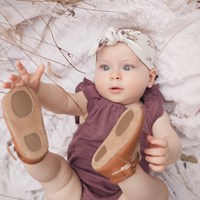
Babies’ movements
Researchers at The Royal Women’s Hospital, The University of Melbourne and the Centre of Research Excellence in Newborn Medicine at the Murdoch Children’s Research Institute are conducting a study looking at babies’ movements.
-
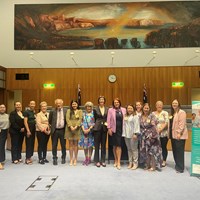
Australian Government Parental Leave Pay Scheme for parents of babies born premature
A Call for Change to the Australian Government Parental Leave Pay Scheme for parents of babies born premature or unwell at birth.
-
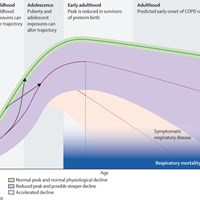
Unravelling the respiratory health path across the lifespan for survivors of preterm birth
An overview of current evidence to date pertaining to the lung development, pulmonary function and respiratory morbidity of those born preterm.
-
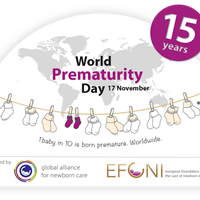
World Prematurity Day
November 17 is World Prematurity Day, a globally celebrated awareness day to increase awareness of preterm births.
-
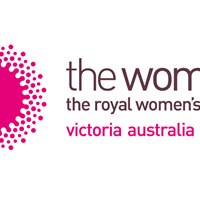
-

Cool Topics in Neonatology 2023
Don't miss out on the highly anticipated Cool Topics event! You'll hear from world-leading clinical researchers as they discuss cutting-edge innovations that are improving the care of babies.
-
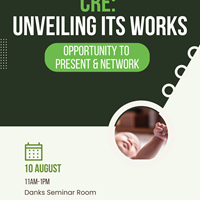
PhD/ECR Session: Unveiling Its Works
The Centre for Research Excellence in Newborn Medicine held its first in-person PhD/ECR presentation and networking session on 10 August 2023 since the pandemic. During this session, current PhDs and ECRs were given the opportunity to present their works to senior research members of the team.
-
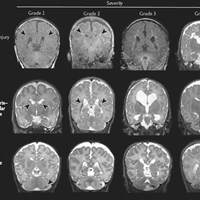
Defining the Neurologic Consequences of Preterm Birth
Neonatal medicine has made leaps and bounds in improving their survival rates, but behind the “Miracle Baby” headlines lie stubbornly high rates of developmental problems, largely due to brain injury and disrupted brain development.
-

Parents’ perceptions and experiences of mental health support for mothers and fathers after the premature birth of their child(ren)
Researchers at La Trobe University are seeking volunteer research participants to be involved in a study about parents' thoughts about parent mental health support after having a baby(ies) born prematurely.
-
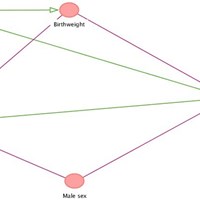
Expiratory airflow at 7–8 years of age in children born extremely low birthweight
Expiratory airflow at 7–8 years of age in children born extremely low birthweight from 14 years before to 14 years after the introduction of exogenous surfactant.
-
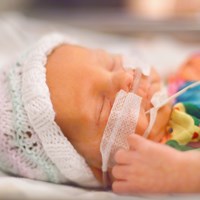
Bundle for Kids Study: Healthcare Professional
Researchers at Murdoch Children's Research Institute are looking for professionals working with infants or children previously admitted to NICU.
-

Bundle for Kids Study
Researchers at MCRI are investigating best ways to support children who were admitted to the NICU and their families.
-
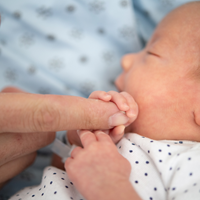
Determinants of the health & development of infants born to mothers with complex substance use: A Minimum Dataset
Infants born to mothers with substance dependence are some of the most vulnerable in our society, yet their specific needs are significantly under-researched.
-
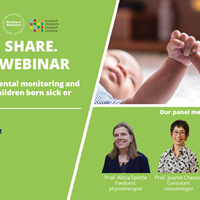
The Developmental Monitoring & Follow-up of Children Born Sick or Premature
The Centre for Research Excellence in Newborn Medicine has held the third in our ‘Listen.Share.Learn’ online discussion series on Wednesday 3rd May 2023. In this webinar, the topic of discussion was about developmental monitoring and follow-up for children born sick or premature.
-
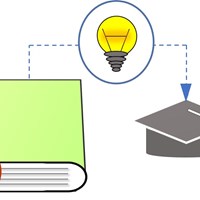
PremmieEd: New VICS2016/17 Online Parent Survey
The PremmieEd project aims to understand parent’s perceptions and experiences of their child’s schooling and development. We also want to know whether parent’s views of their child’s education experience are impacted by extremely preterm birth (birth before 28 weeks of pregnancy).
-
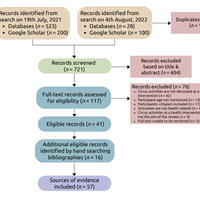
Circus Activities as a Health Intervention for Children, Youth, and Adolescents: A Scoping Review
Circus activities are emerging as an engaging and unique health intervention. This scoping review summarises the evidence on this topic for children and young people.
-
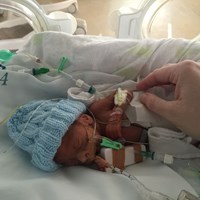
Growth from infancy to adulthood and associations with cardiometabolic health in individuals born extremely preterm
Extremely preterm infants show catch up weight and body mass index to young adulthood, which may not be desirable as it is associated with poorer cardiometabolic health.
-
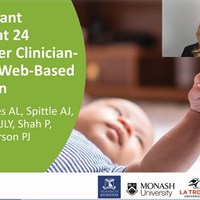
Preterm Infant Outcomes at 24 Months After Clinician-Supported Web-Based Intervention
This study led by Dr. Karli Treyvaud examines the effectiveness of a clinician-assisted, web-based early intervention program for families after the premature birth of their baby.
-

New online parent and teacher project beginning in 2022!
There is an exciting VICS project starting soon looking at parent and teacher perceptions and decision making regarding the education of children born preterm.
-

Mental health in young adults born extremely preterm or extremely low birthweight with contemporary neonatal intensive care
Our recent study highlights the mental health outcomes of young adults born extremely preterm in the years between 1991-1992. Here we found that those who were born extremely preterm had similar mental health outcomes to those born full term.
-

Seeking allied healthcare professionals to participate in research
We are seeking allied healthcare professionals to participate in our study! Share your thoughts and ideas on physical activity participation interventions for children born very preterm.
-
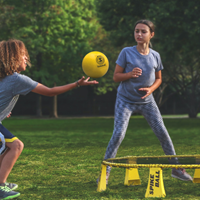
Seeking children born very preterm & families
We are seeking 10-14 year old children born very preterm and their families! We want to hear about your experiences of participating in physical activity.
-
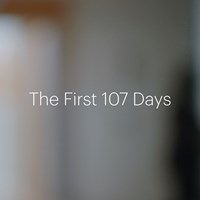
The First 107 Days
In our recent partnership with consumers of newborn medicine, the CRE's study titled 'Identifying research priorities in newborn medicine: a Delphi study of parents' views', highlighted the many challenges parents can experience in the neonatal unit and beyond.
-
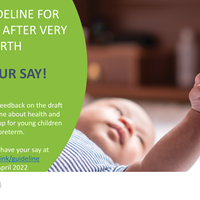
Have your say! Public consultation for scope of proposed guideline now open
We are inviting feedback on the draft scope of a proposed guideline about health and developmental follow-up for young children born very preterm. The scope explains what the new guideline will and won’t cover.
We want to hear from families, clinicians, and others involved in caring for children born very preterm about what health and developmental follow-up should focus on in supporting these children and their families.
-
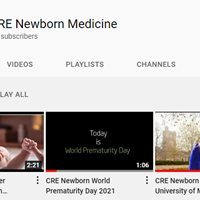
Do you know we are now on YouTube !?
Subscribe to our channel and view all our webinars, events, video abstracts, news videos and more! Head there now and take a look around https://bit.ly/3oAfuNN
-
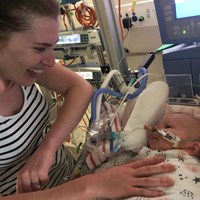
Help us advocate for change to paid parental leave for parents of babies born preterm or sick
Approximately 6% of all Australian babies are admitted to a Neonatal Intensive Care Unit (NICU) or Special Care Nursery (SCN) after birth for an extended period of over 2 weeks, causing both emotional and financial stress for parents, with implications for long-term health and economic outcomes for families and the community.
-
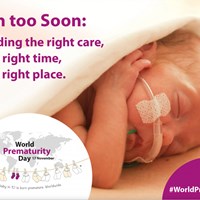
World Prematurity Day 2021: Bringing awareness to effects of prematurity
On World Prematurity Day this year, CRE Newborn Medicine's Chief Investigator Professor Alicia Spittle & her research team from the Department of Physiotherapy at the University of Melbourne described their work to lessen the long term effects of prematurity for children & their families.
-
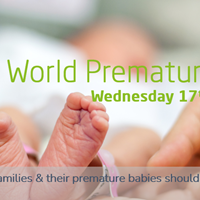
World Prematurity Day 2021: Advocating for financial relief for parents of babies born too soon
The CRE in Newborn Medicine used this years World Prematurity Day to continue to raise awareness to their work with Miracle Babies Foundation and the University of Melbourne advocating for change to the Australian paid parental leave entitlements for parents of babies born early or sick.
-
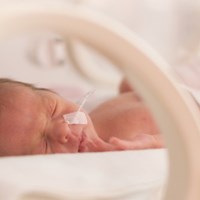
Early-career researchers awarded for contributions to newborn medicine
The Royal Women’s Hospital Dr Kate Hodgson and Murdoch Children’s Research Institute (MCRI) Ms Free Coulston have been recognised for their contributions to newborn medicine research.
The MCRI-led Centre for Research Excellence (CRE) in Newborn Medicine symposium included presentations from 11 students on research aimed at improving the health outcomes of newborn babies and their families.
-
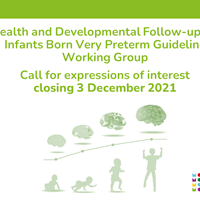
Collaborators needed to improve the health and developmental outcomes for infants born very preterm
The Centre of Research Excellence in Newborn Medicine is calling for collaborators to create a clinical practice guideline about health and developmental follow-up for infants born very preterm (<32 weeks’ gestation) in Australia.
This project will run through 2022 and bring together a diverse group of people from around Australia who have professional or lived experience caring for children born very preterm.
-
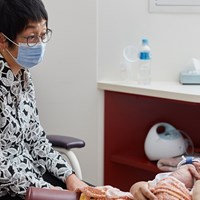
COVID-19 and Preterm Children. What is known?
The CRE in Newborn Medicine have developed a short factsheet for parents of preterm children who may be concerned their child is at increased risk of COVID-19.
-
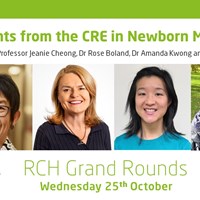
New Initiatives & Innovation from CRE Newborn showcased at RCH Grand Rounds
Now in its 13th year, the CRE in Newborn Medicine is supporting new initiatives to improve how newborn babies are cared for and highlights of this innovative work was presented recently as part of the Royal Children’s Hospital Grand Rounds Seminar Series.
-
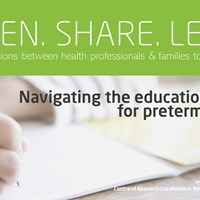
Navigate the education system with your preterm child a little easier
The Centre for Research Excellence in Newborn Medicine has held the second in our ‘Listen.Share.Learn.’ online discussion series on Wednesday 11th August, this time providing parents with the knowledge and tools to navigate the education system with their preterm child.
-
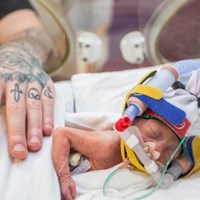
Research News: Survival rates increase for extreme premmies
The world’s largest and longest running study of babies born extremely premature found survival
rates have increased by nearly 20 per cent since the early 1990s. -
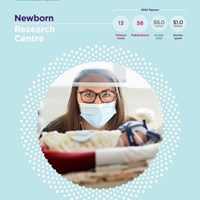
The Royal Women's Hospital launches 2020 Research Report
A valued partner of the CRE in Newborn Medicine, the Royal Women's Hospital in Melbourne has launched its 2020 Research Report. CRE in Newborn Medicine Director, Professor Jeanie Cheong spoke at the event on August 4th, where the Women's showcased some of the highlights of the ongoing and published research projects responsible for improving the health outcomes of newborn babies at the hospital, across Australia and globally. Many of these projects are led by or involve several of the Investigators in the CRE in Newborn Medicine.
-

Register NOW: Listen. Share. Learn. Navigating the education system for your preterm child
Registrations are now open for the second of our ‘Listen.Share.Learn’ series, an online discussion bringing together service providers and families and this time we are speaking about navigating the education system for preterm children. -
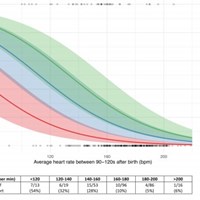
Research News: Changing the way clinicians help all newborns to breathe after birth
CRE in Newborn Medicine Clinical Research Fellow and PhD student Shiraz Badurdeen talks about his latest findings published in the Archives of Disease in Childhood: Fetal & Neonatal this month as part of the Baby Directed Umbilical Cord Clamping (Baby DUCC) study.
-
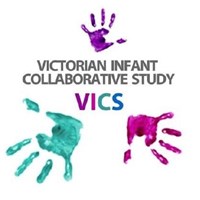
Research News: Latest VICS Newsletter
Central to the research program of the CRE Newborn Medicine is the Victorian Infant Collaborative Study, or VICS, of which our Director, Professor Jeanie Cheong, is the convenor. Read about their latest news in most recent newsletter.
-

What is ‘The Goss’ on the transition from fetus to newborn?
Professor Peter Davis, Chief Investigator and part of the Executive of the CRE in Newborn Medicine, presented at The University of Melbourne’s Gynaecology & Obstetrics Seminar Series, The Goss, this month, taking attendees through the “adventure” undertaken by a newborn baby as it transitions from fetus to the outside world.
-
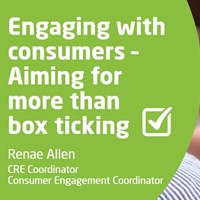
CRE in Newborn Medicine Consumer Engagement Program: More than just ticking a box
Consumer Engagement is central to the Centre of Research Excellence in Newborn Medicine’s program of research to improve newborn care. A systematic approach for our researchers to engage with consumers at all steps of the research cycle has been established now for 18 months, and the CRE in Newborn Medicine can pride itself in leading the way in the field by meaningfully embedding the lived experiences of those born sick or preterm and their families into the CRE’s research agenda.
-
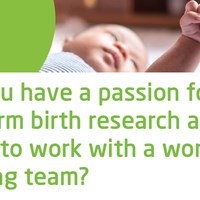
Are you interested in working with us?
Do you have a passion for preterm birth research and want to work with a world leading team? The CRE in Newborn Medicine is advertising for an allied health researcher to join The Victorian Infant Brain Studies group at The Murdoch Children’s Research Institute. We are seeking a PhD student to work on a project investigating the impact of moderate-late preterm (MLP; 32 to <37 weeks’ gestation) birth on neurodevelopment, brain development, and respiratory health at 9 years of age.
-
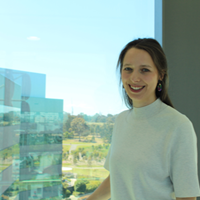
Student Spotlight: Kate Cameron
Having just presented her project at her PhD completion seminar, CRE in Newborn Medicine PhD Candidate, Kate Cameron is now busy writing up her thesis for submission before the end of the year. Kate’s study has examined the differences in involvement of preschool age children in a range of activities between those born preterm and children born at term.
-

Professor Alicia Spittle Appointed Acting Associate Dean of Research for the Faculty of Medicine, Dentistry and Health Sciences at the University of Melbourne.
Chief Investigator and co-chair of the Policy & Practice Translation subcommittee for the CRE in Newborn Medicine, Professor Alicia Spittle, has been appointed to the interim position of Associate Dean Research for the Faculty of Medicine, Dentistry and Health Sciences at the University of Melbourne.
-
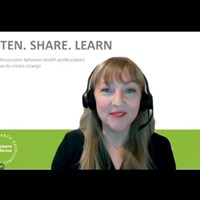
Listen.Share.Learn Parent Mental Health in the Neonatal Unit and Beyond - Recording now available!
The Centre of Research Excellence in Newborn Medicine was joined by over 100 health professionals and family members in its first ‘Listen.Share.Learn’ event on April 13th. ‘Listen.Share.Learn’ is a series of online discussions that focus on topics identified by consumers of newborn medicine as important areas for change. Understanding how the neonatal experience affects parents’ mental health and how this can be improved was where our consumers wanted to start these important discussions – and that topic was the focus of our first discussion.
-
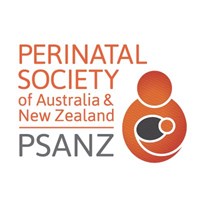
PSANZ Annual Congress a big success having gone virtual in 2021
The Perinatal Society of Australia & New Zealand (PSANZ) annual congress aims to “broaden perspectives of perinatology; stimulate research activity; present scientifically rigorous and valid new information and provide a forum to debate this new information and other ideas”. And the congress in 2021 was more important than ever, having been cancelled in 2020 due to the coronavirus pandemic.
-
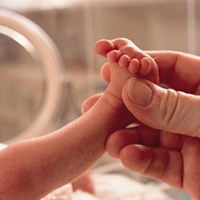
The CRE in Newborn Medicine is continuing to fund innovative research in 2021
In 2021, the CRE in Newborn Medicine is continuing to fund innovative projects to improve the health of all newborn babies and their families.
-

Lived Experience from our Consumer Group informs new Extreme Prematurity Guideline
Dr Rose Boland, an Associate Investigator for the CRE in Newborn Medicine was part of the Expert Working Group appointed by Safer Care Victoria to develop guidelines for extremely preterm birth and here talks about the guidelines and the role played by our Consumer Advisory Group in developing the Parent Information Sheets, a key component of the guideline.
-
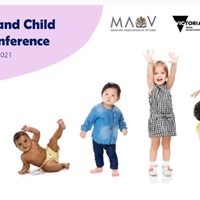
Updating Maternal and Child Health Professionals about outcomes for preterm babies
CRE in Newborn Medicine Director Professor Jeanie Cheong and Chief Investigator Professor Rod Hunt recently presented at the Maternal and Child Health conference to an audience of Maternal and Child Health (MCH) nurses, MCH students and allied health professionals working in the maternal and child health sector at their February conference hosted by DHHS and Municipal Association of Victoria (MAV).
-

First detailed insight into newborn babies’ lungs at birth
Melbourne researchers have captured the first detailed images of newborn babies’ lungs as they take their first breaths.
The research, led by a group of our colleagues at Murdoch Children's Research Institute and involving one of our CRE in Newborn Medicine Chief Investigators, Professor Peter Davis, provides a breakthrough in understanding the events around a baby’s first breath, why healthy babies cry at birth and provides clues to improving preterm babies’ survival chances and long term health outcomes.
-
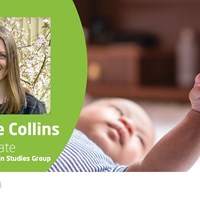
Student Spotlight: Simonne Collins, PhD Candidate
Passionate about all children being able to achieve their full academic potential, CRE in Newborn Medicine PhD Candidate, Simonne Collins is studying the factors that influence the decisions that parents of children born very preterm make in regards to their child’s schooling. Knowing that such decisions can influence a child’s academic achievement, Simonne wants to understand whether these decisions are unique to parents of children born very preterm, with the aim of this knowledge being able to be used to support parents to navigate school-related decision making in a manner that is sensitive to the needs of the very preterm population.
-
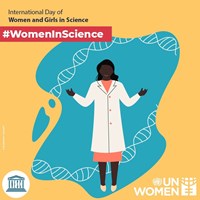
CRE in Newborn Medicine celebrates International Day of Women and Girls in Science
Today, on the 6th International Day of Women and Girls in Science, we reflect on the depth of expertise of the women in our CRE in Newborn Medicine team, who are working to improve the outcomes for all newborn babies and their families. We also celebrate the men and the women in the team who are actively working to support the success of the next generation of female health professionals in the newborn medicine field.
-

Professor Rod Hunt discusses Improving Perinatal Care, Preventing CP and Driving New Research
CRE in Newborn Medicine Chief Investigator, neonatologist, researcher, and recently appointed Financial Markets Foundation for Children Chair in Neonatal Paediatrics at Monash Health, Professor Rod Hunt, reported on the clinically significant improvements for children and families with Cerebral Palsy (CP) in a review published in Developmental Medicine & Child Neurology (DMCN) recently.
-

The ethical considerations of seeking consent for delivery room trials
Delivery room trials face uniquely challenging environments for seeking consent from parents prior to research, explains CRE in Newborn Medicine Chief Investigator, Consultant Neonatologist Associate Professor Louise Owen, in an editorial published in the latest issue of the Fetal & Neonatal edition of Archives of Disease in Childhood.
-
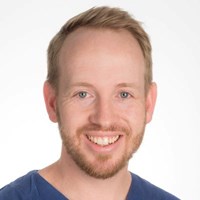
Associate Professor Brett Manley honoured for outstanding contribution to research
Brett Manley, Consultant neonatologist at The Women’s hospital in Melbourne, Associate Professor at The University of Melbourne and CRE in Newborn Medicine Chief Investigator, was late last year awarded a Dame Kate Campbell Fellowship from the Faculty of Medicine, Dentistry and Health Sciences at the University of Melbourne.
-
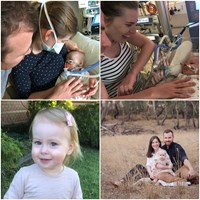
Financial impact on parents with a baby in a neonatal nursery
Kate Rawnsley, mother to 2 year old Macy, recently told us about her experience of having a baby admitted to the NICU after birth and how financial stress was a distraction from what really mattered most.
-
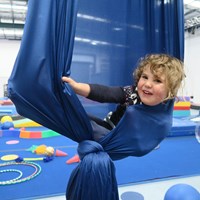
Research News: Circus intervention for preschoolers born extremely preterm awarded grant
CRE in Newborn Medicine PhD candidate, Free Coulston, has been awarded a Physiotherapy Research Foundation Seeding Grant of $10,000 for her study, “The Circus Project: Co-designing a circus intervention for preschoolers born extremely preterm.”
-
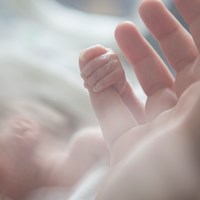
Research News: Adults born extremely preterm at increased risk of heart health issues
Research published recently as part of the ongoing Victorian Infant Collaborative Study, which has been monitoring a group of Australians since their birth in 1991 or 1992, has shown adults born extremely premature/low birth weight are at increased risk for less favourable cardiovascular health in areas such as blood pressure, exercise capacity, fasting blood glucose and visceral abdominal fat.
-
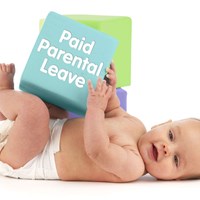
Paid Parental Leave for babies requiring neonatal intensive or special care after birth
The Centre of Research Excellence for Newborn Medicine, the Miracle Babies Foundation, and The University of Melbourne are undertaking an important research study. This study will help us to learn more about your experiences of receiving Australian Government or industry paid parental leave schemes in Australia and the financial impact of having a baby (or babies) requiring hospitalisation directly after being born.
-
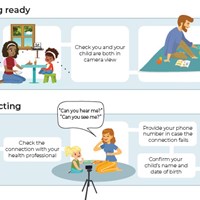
CRE in Newborn Medicine responds to the telehealth needs of consumers
Telehealth has enabled Australians to continue to receive high quality health care during the COVID-19 pandemic, with the total number of telehealth consultations between March & June 2020 totaling over 17 million. The CRE in Newborn Medicine has teamed up with researchers at The University of Melbourne to develop resources that support families to access health care using telehealth. Having previously released a guide for families with infants, the team have now developed the Telehealth Appointment Guide for Families with Young Children.
-
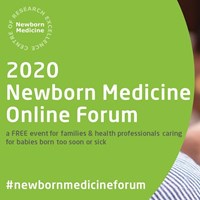
2020 Newborn Medicine Online Forum: Recordings now available !
The CRE in Newborn Medicine has been overwhelmed with the positive response to our 2020 Newborn Medicine Online Forum! We had over 580 attendees join us on the day and we are enjoying reading all the ideas flowing in about what you would like to see from us next year!
The recordings of the presentations from this year’s forum are now available for you to view here.
-
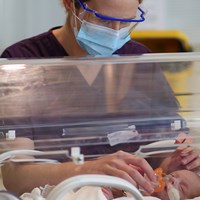
Research News: More babies being given a fighting chance
CRE in Newborn Medicine Director Professor Jeanie Cheong has published findings in BMJ Open showing that survival rates of extremely premature babies has gone up by nearly 20 per cent since the early 1990s, thanks to advances in clinical practice, research and technology.
-
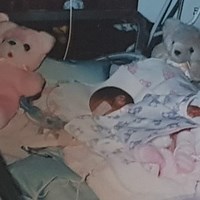
Consumer Advisor Catch Up: Louise Pallot
We recently caught up virtually with a much-valued member of our Consumer Advisory Group, Louise Pallot, to speak about her experiences that led her to want to get involved in our research.
-

2020 Newborn Medicine Online Forum
Thanks for your interest in the 2020 Newborn Medicine Forum ! We had an overwhelming response with 580 attendees tuning in live on Wednesday 9th September. A recording of the event will be made available on our website soon and we look forward to bringing you the next online event.
The Centre of Research Excellence (CRE) in Newborn Medicine is excited to bring you the 2020 Newborn Medicine Online Forum which will celebrate the work of our past and detail the work of our future. This is an event for health professionals and families involved in the care of babies born early or sick.
-

CRE in Newborn Medicine Neonatologists involved in international effort to address impact of COVID_19 on their practice
The coronavirus pandemic has highlighted the critical role played by international collaboration in healthcare and medical research. Across all fields, doctors and researchers across the globe are working together tirelessly to address how the outbreak of COVID-19 is impacting their practice.
One such demonstration of this was seen in the area of neonatology with swift coordination and rapid action resulting in the publication today in Acta Paediatrica of the Review of guidelines and recommendations from 17 countries highlights the challenges that clinicians face caring for neonates born to mothers with COVID‐19.
-
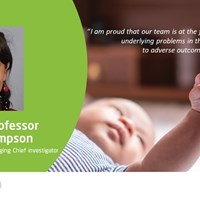
Professor Profile: Associate Professor Deanne Thompson
What is your current role?
I am a senior neuroscientist and lead the neuroimaging team within Murdoch Children’s Research Institute’s (MCRI) Victorian Infant Brain Studies (VIBeS) group. I am the neuroimaging chief investigator in the CRE and co-chair the research subcommittee with Associate Professor Brett Manley.
-
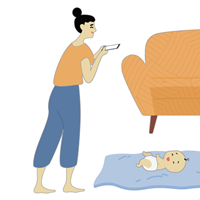
Our researchers are now recruiting families with 3-4 month old babies for a new study
CRE Researchers are partnering with families to evaluate instructions on how to film their baby’s movements for clinical assessment
-
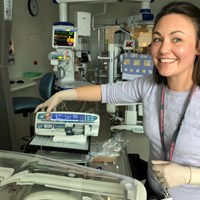
Research News: Cell Therapy for the Preterm Infant - The Renewal Project
CRE in Newborn Medicine PhD candidate Dr Liz Baker speaks about her research Project Renewal - Reducing Neonatal Lung Disease with Amnion Cells. Liz recently published a paper in the Archives of Disease in Childhood - Fetal and Neonatal Edition which details the laboratory evidence for cell therapy in the treatments of brain and lung injury suffered by preterm babies and the challenges in the field. Now Renewal is moving this therapy into clinical trial.
-
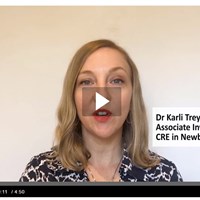
Research News: Post-traumatic stress symptoms in mothers and fathers of very preterm infants over the first 2 years
CRE in Newborn Medicine Associate investigator Dr Karli Treyvaud discusses research examining post-traumatic stress symptoms of mothers and fathers across the first two years after the very preterm birth of their child. Mothers and fathers completed questionnaires at three time points, and change in post-traumatic stress symptoms were accessed over time as well as whether medical or social risk factors were associated with symptoms. Implications for future predictive research and clinical support are also discussed.
-

One Minute Biography: CRE in Newborn Medicine Research Nurse, Merilyn Bear
Merilyn Bear is the Research Nurse Coordinator for the Victorian Infant Brain Studies (VIBeS) group. Merilyn uses her specialist skills to support children and their families through every step of the study pathway. While ensuring that our studies are delivered safely and effectively, Merilyn's priority is the care and comfort of our participants and their families, some of which Merilyn has known for over 15 years.
Merilyn juggles the responsibilities of her role with welcoming new staff and being the go-to person for when anyone needs to know anything. We spent one minute with Merilyn.
-

Student Spotlight: Shiraz Badurdeen, PhD Candidate
Shiraz is a Neonatal Research Fellow at The Womens’ and PhD candidate through the Ritchie Centre, Monash University. He is the Co-Principal investigator for the Baby-DUCC (Baby-Directed Umbilical Cord Clamping) Study. Shiraz successfully obtained funding from the CRE in Newborn Medicine to launch the Cerebral Haemodynamics and Oxygenation with Physiologically-based cord clamping (CHOP) randomised trial, embedded within the BabyDUCC study. These studies aim to help understand how best to protect the brain during resuscitation of full-term and near-term infants. The studies focus on resuscitation with the infant still connected to the mother through the umbilical cord, and on oxygen use when helping infants breathe. Support from the CRE has enabled novel monitoring of the brain’s exposure oxygen and blood pressure in this context.
-
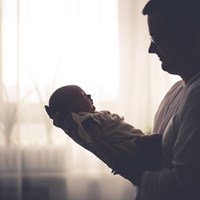
Research News: Mental Health of Fathers of Babies Born Very Preterm
A new study led by CRE in Newborn Medicine PhD student Grace McMahon has highlighted the need for dads to be aware of the potential impact of very premature birth on their mental health.
-
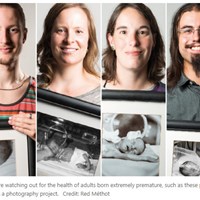
An exciting time to make a difference to the health of adults survivors of preterm birth, says Professor Jeanie Cheong
CRE in Newborn Medicine Director, Professor Jeanie Cheong and our former Director, Professor Lex Doyle were recently interviewed for a feature article in the medical journal Nature, discussing research into babies born extremely preterm and their long term outcomes. Adult survivors of extreme prematurity (less than 25-28 weeks gestation) are now a larger population than ever before and researchers are now able to study the effects of having been born early.
-

Post Doc Profile: Dr Amanda Kwong
Tell us about yourself and the work that you do
My PhD studied the use of a parent-operated smartphone app, Baby Moves, among babies who were born extremely premature within the Victorian Infant Collaborative 2016/2017 cohort. The General Movements Assessment is commonly used to screen babies who were born extremely premature for early signs of cerebral palsy. While traditionally an assessment based on videos of a baby's movements within a clinical setting, my PhD looked at one of the first known methods that allows families to record their baby's movements from the comfort of their own home.
-
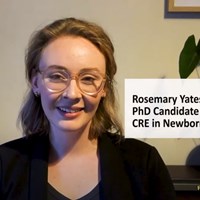
Research News: Mental Health Outcomes of Very Preterm Children
CRE in Newborn Medicine PhD Candidate, Rosie Yates recently published findings in Pediatrics, showing that being born very preterm (32 weeks into pregnancy or less) can increase a child's risk of mental ill-health.
-
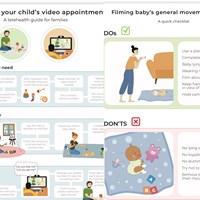
New Resources created by the CRE in Newborn Medicine
The change to the way of working in this time of Covid-19 has driven innovation in the CRE in New Medicine team. Chief Investigator Professor Alicia Spittle has been working with Knowledge Translation Fellow, Dr Abbey Eeles, to produce several resources that are getting positive feedback from clinicians and researchers all over the world.
-

The landscape of medical and clinical research during the Covid-19 pandemic
The research sector has been presented with a multitude of challenges with the emergence of the COVID-19 pandemic. The cancellation of medical conferences, suspension of “non-essential” international and national travel, as well as increasing social restrictions has meant that research activities have been significantly affected. The CRE in Newborn Medicine research team share global concerns about COVID-19 and how it will impact on all aspects of our community and our work.
-
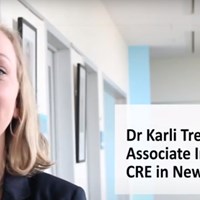
Research News: Supporting Parents in the NICU
CRE in Newborn Medicine Associate investigator Dr Karli Treyvaud speaks about the need for a multilayered approach to supporting parents in the NICU after the birth of a preterm baby.
-
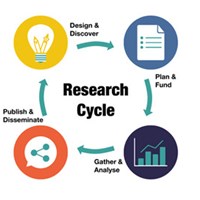
Want to work with us? PhD Project Opportunity in the CRE in Newborn Medicine
Do you have a passion for preterm birth research and want to work with a world leading team? The CRE in Newborn Medicine is advertising for an allied health researcher to join The Victorian Infant Brain Studies group at The Murdoch Children’s Research Institute.
-
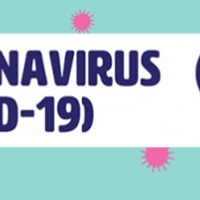
Evidence Based Resources for Families about Covid-19
Navigating the Resources regarding Covid-19 can be overwhelming for families. Especially those families who have had a sick or preterm child.
The following is a list compiled by researchers from the CRE in Newborn Medicine, of links to evidence-based resources for families who are understandably worried and seeking information.
-
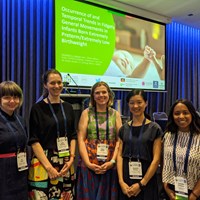
"Visionary" CRE Researchers Present their work at the 2020 AusAcademy of Cerebral Palsy and Developmental Medicine Conference in Perth
From the 11th to the 14th of March, a team of CRE researchers attended the Australasian Academy of Cerebral Palsy and Developmental Medicine 2020 Biennial Conference at the Perth Convention & Exhibition Centre. The theme for the conference was 2020 Visionaries, chosen to “embolden participants to be Visionaries in their practice and research, leading to future-focused Visionary outcomes for the children and families they work with.” And the presentations by our researchers certainly fell within this theme.
-
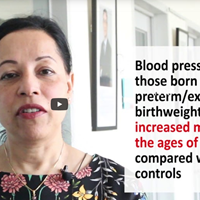
Young adults born extremely preterm at risk of heart disease
A study led by researchers from the Centre of Research Excellence (CRE) in Newborn Medicine has shown that young adults born extremely preterm are susceptible to high blood pressure.
-
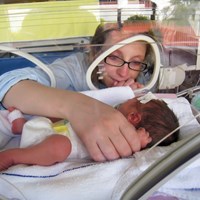
What is the CRE in Newborn Medicine Funding in 2020?
In 2020, the CRE in Newborn Medicine is continuing our commitment to fund innovative projects to improve health for all newborn babies and their families.
-

Top Honours to our Investigators
The new year started with celebrations for the CRE in Newborn Medicine as we acknowledge the recent academic promotions of several of our chief investigators.
-
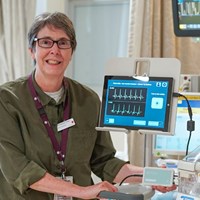
$400,000 awarded to device for critically ill babies
Much valued CRE in Newborn Medicine Collaborator, RWH Consultant Neonatologist Associate Professor Christane Theda, has received a $400,000 grant from the Federal Government to advance the development of her innovative device that improves the care of critically ill babies in the NICU.
-
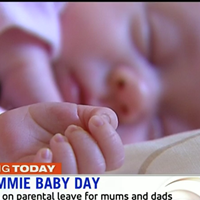
Call for more paid parental leave for parents of babies born preterm or sick
This year on World Prematurity Day, the CRE in Newborn Medicine campaigned alongside Miracle Babies Foundation for the Australian government to ease the financial impact experienced by families at this already stressful and emotional time.
-
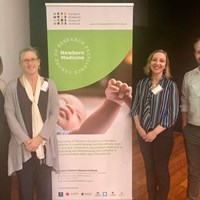
Neonatologists come together for discussion of cool topics
Last week saw the Royal Women’s Hospital play host to some 300 health professionals from the all over the world for the 13th annual Cool Topics in Neonatology conference. Held at the University of Melbourne on Thursday 14 and Friday 15 November, Cool Topics brought together neonatologists, paediatricians, obstetricians, NICU nurses, psychologists, researchers and allied health professionals to discuss latest findings and insights with the aim to inform practices and improve outcomes in the field of neonatology.
-
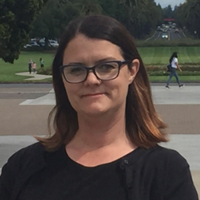
Dame Kate Campbell Fellowship awarded to Kim Dalziel, Associate Investigator in the CRE in Newborn Medicine
Health Economist and Associate Investigator in the CRE in Newborn Medicine, Associate Professor Kim Dalziel, was another academic in our team to be awarded the Dame Kate Campbell Fellowship, alongside Associate Professor Alicia Spittle. Kim is a Health Economist leading a program of research in child health in the Health Economics Unit in the Centre for Health Policy at The University of Melbourne. Her research has a strategic focus on the use of health economics to support clinical innovation, and for clinical research studies in neonatal medicine in the CRE in newborn medicine, Kim leads the economic evaluation.
-
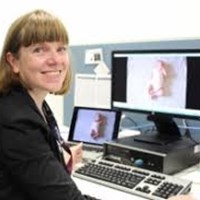
Chief Investigator Associate Professor Alicia Spittle awarded a Dame Kate Campbell Fellowship
Last week, saw CRE in Newborn Medicine Chief Investigator Associate Professor Alicia Spittle awarded a Dame Kate Campbell Fellowship from the Faculty of Medicine, Dentistry and Health Sciences at the University of Melbourne. Alicia is a paediatric physiotherapist specialising in the early detection & intervention of motor impairments for high risk infants. She works clinically in the follow up clinic at The Women’s, lectures in Paediatrics at The University of Melbourne and leads the motor team in the Victorian Infant Brain Studies (VIBeS) Group at MCRI.
-
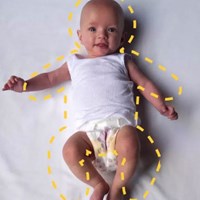
The Baby Moves App, developed by our CRE Chief Investigator Alicia Spittle, is an example of innovation, creative thinking and collaboration
Create Digital is a platform that uses their channels to tell the stories behind the latest trends, innovations and people shaping the world around us. It is of little surprise then that they wanted to feature an article on The Baby Moves App, a simple tool that is having enormous impact.
-
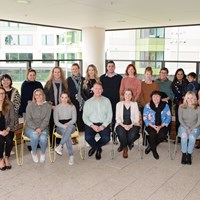
The Inaugural meeting of the CRE in Newborn Medicine Consumer Advisory Group
On Tuesday 16th July a group of 15 consumers came together with members of the CRE in Newborn Medicine’s Policy and Practice Translation subcommittee to discuss the ways this group will collaborate with the CRE in Newborn Medicine to advise on the research and translation activities being undertaken by the team.
-
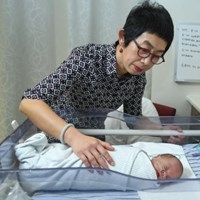
Parents look to the latest research findings from the CRE in Newborn Medicine to make tough decisions
A great story about one of the tiniest patients born at the Royal Women’s hospital in Melbourne.
-

Professor Lex Doyle Queens Birthday Honours
Neonatal Paediatrician, Academic, Author, Researcher and CI on the CRE in Newborn Medicine Professor Lex Doyle, was named an Officer of the Order of Australia in the Queen’s Birthday Honours list.
-
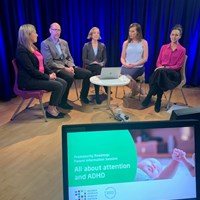
Interactive Facebook Live Session: ADHD and attention problems in children born preterm
On Thursday 30 May, together with our partners Life's Little Treasures Foundation, the CRE in Newborn Medicine hosted its third interactive Facebook Live event for our Prematurity Roadmap series.
-
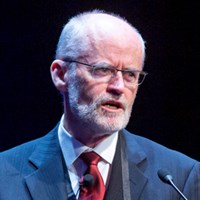
Professor Lex Doyle honoured for outstanding contribution to paediatrics
Professor Lex Doyle was awarded the Howard Williams Medal at the Royal Australasian College of Physicians Annual Meeting in Auckland
-

Jeanie Cheong, Director of the CRE in Newborn Medicine summarises VICS for colleagues at MCRI
Our incredible leader, Director of the CRE in Newborn Medicine Associate Professor Jeanie Cheong gave a talk about how a single research question led the amazing body of work that is VICS.
-

Dr Louise Owen, CRE in Newborn Medicine Chief Investigator, appears on The House of Wellness
Dr Louise Owen, CRE in Newborn Medicine Chief Investigator, appears on The House of Wellness
-
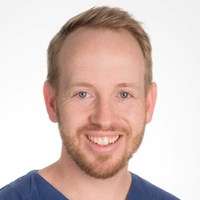
Dr Brett Manley, Consultant Neonatologist and CI in the CRE in Newborn medicine, published results of The Hunter Trail in New England Journal of Medicine
Dr Brett Manley, Consultant Neonatologist and CI in the CRE in Newborn medicine, published results of The Hunter Trail in New England Journal of Medicine
-
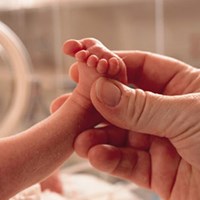
People born very preterm or with very low birthweight have high risk of lung disease
A global study shows people born very preterm or with very low birthweight have a high risk of lung disease and are not reaching their full airway capacity by early adulthood.


